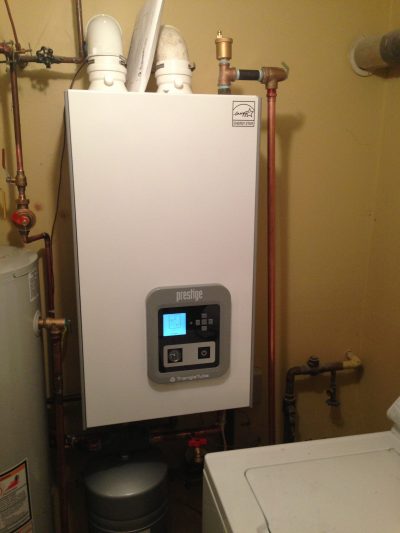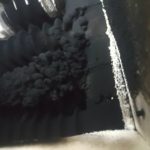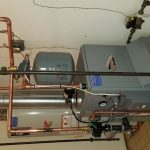There are many good things to say about high efficiency/ tankless hot water heating boilers. You’ve heard many good things like the savings and the energy efficiency. These things are smart. Some units even come with an outdoor sensor that will adjust their output according to the temperature outside. So if it’s 20 out it will urn at 100%, but if it’s 60’s out it may modulate down to 30%. Smart! Modulation is another great feature. Ability to cycle down or up percentage of burning power. Like adjusting a burner on a range top. Standard counterparts only have 2 speeds and they are 100% or off.
Majority of high efficiency boilers are condensing. Which means that they are able to utilize/absorb more heat from combustion than their standard counterparts. Flue/combustion gasses leaving these boilers are much less hot than that of standard counterparts (650°F vs 80°F). Since these gasses transfer/lose/utilize so much heat @ combustion, condensation occurs.
Now lets delve into potential weaknesses. First and most obvious, these systems are much more complex than their standard counterparts and have a lot more parts functioning. Statistically speaking the more parts the more chances there are for malfunction of one of these parts. What should also be considered is our water. We have very hard water. It mineralizes everything, especially boiler insides. This buildup sometimes hinders the function of all of these sensors and malfunction may occur. Manufacturers recommend a chemical wash every year. This process removes all mineral buildup and cleans the insides of the boiler, however this is a time consuming task that is also significantly more expensive than a standard boiler maintenance. On a side note a water softener significantly reduces this buildup accumulation. Condensation can be an issue if exhaust is not properly installed. Shall other general malfunction to occur not all techs are able to diagnose the issue. Parts are typically very brand and model specific, which leads parts (un)availability.
High efficiency boilers are the pinnacle of HVAC technology. However, for a homeowner it is a costly investment, which also requires annual upkeep.
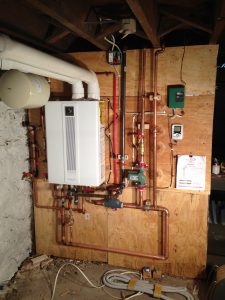
high efficiency Quietside combi boiler installation
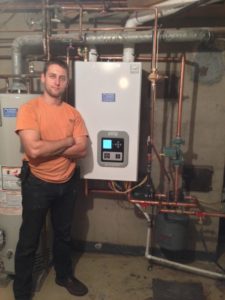
Triangle Prestige High efficiency boiler

